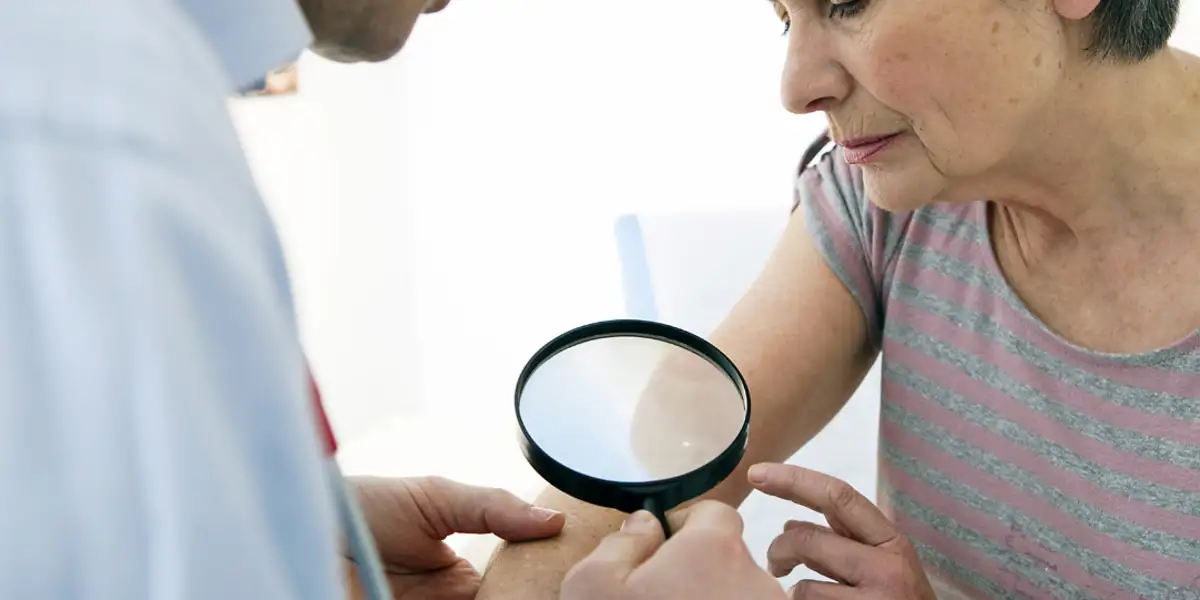Skin cancer is a prevalent and potentially life-threatening condition that affects millions of people worldwide. Understanding how to screen for skin cancer is crucial for early detection and, ultimately, saving lives. In this comprehensive guide, we will walk you through the process of screening for skin cancer, step by step, ensuring you have the knowledge to protect yourself and your loved ones.
The Importance of Skin Cancer Screening
Skin cancer can manifest in various forms, including melanoma, basal cell carcinoma, and squamous cell carcinoma. Early detection is the key to successful treatment, making regular screening a vital part of your healthcare routine.
Self-Examination
Self-Examination: Where to Begin
Begin by examining your skin regularly, ideally once a month. You can do this in the privacy of your home. Use a well-lit room and a full-length mirror, along with a hand-held mirror for those hard-to-see areas.
What to Look For
Look for any changes in the size, shape, color, or texture of moles, freckles, or any other skin abnormalities. Pay close attention to any new growths or spots that exhibit irregularities.
The ABCDE Rule
Remember the ABCDE rule when examining moles:
- A (Asymmetry): If one half of the mole doesn’t match the other half.
- B (Border): If the edges are irregular, notched, or blurred.
- C (Color): If the color is uneven or varies within the mole.
- D (Diameter): If the mole’s diameter is larger than a pencil eraser (6 mm).
- E (Evolving): If the mole changes in size, shape, or color.
If you notice any of these signs during self-examination, consult a healthcare professional promptly.
Professional Dermatological Examination
Finding a Dermatologist
Consulting a dermatologist is a critical step in skin cancer screening. Look for a qualified dermatologist in your area, and schedule a comprehensive skin examination. They have the expertise to detect even subtle changes in your skin.
Frequency of Professional Examinations
For individuals with a history of skin cancer or other risk factors, annual dermatological examinations are recommended. Regular check-ups with a dermatologist ensure that any abnormalities are identified and addressed promptly.
Know Your Risk Factors
Understanding your risk factors for skin cancer is essential. Factors such as fair skin, a family history of skin cancer, excessive sun exposure, and a weakened immune system can increase your susceptibility. Being aware of these risk factors allows you to take preventive measures and engage in vigilant screening.
Sun Protection
Prevention is just as vital as detection. Protect your skin from harmful UV rays by:
- Applying broad-spectrum sunscreen with at least SPF 30.
- Wearing protective clothing, including wide-brimmed hats and sunglasses.
- Seeking shade during peak sunlight hours.
- Avoiding tanning beds and booths.
Stay Informed
Staying informed about skin cancer and its prevention is an ongoing process. Stay updated on the latest developments and recommendations in skin cancer prevention and early detection. Knowledge is your best defense.
Know the Warning Signs
Understanding the warning signs of skin cancer is crucial. If you notice any of the following symptoms, it’s essential to seek immediate medical attention:
- Persistent and unexplained itching, pain, or tenderness in a specific area of your skin.
- A sore that doesn’t heal within a few weeks.
- A mole or spot that continues to grow or change over time.
- Redness, swelling, or unusual bleeding from a skin lesion.
Recognizing these signs and acting promptly can make a significant difference in the outcome of your skin health.
Skin Cancer Awareness
Increase awareness about skin cancer among your family, friends, and community. Encourage them to take preventive measures and engage in regular skin cancer screenings. The more people are informed, the better we can collectively combat this condition.
Maintain a Healthy Lifestyle
A healthy lifestyle can also reduce your risk of developing skin cancer. Ensure you:
- Eat a well-balanced diet rich in fruits, vegetables, and antioxidants.
- Stay physically active and maintain a healthy weight.
- Avoid smoking and limit alcohol consumption.
A healthy body is better equipped to fend off potential threats, including skin cancer.
Support Skin Cancer Research
Consider supporting skin cancer research initiatives and organizations dedicated to raising awareness and funding for research. Your support can contribute to the development of more effective treatments and prevention strategies.
Final Thoughts
Screening for skin cancer is an essential aspect of taking control of your health. By following this step-by-step guide and adopting a proactive approach to your well-being, you can significantly reduce the risk of skin cancer and increase your chances of early detection and successful treatment.
Remember, your skin is your body’s largest organ, and protecting it should be a top priority. Regular screenings, vigilant self-examination, and a commitment to sun protection can make a world of difference. Stay informed, take action, and encourage others to do the same. Together, we can combat skin cancer and ensure a healthier future for all.

Regular Check-Ins
Don’t underestimate the significance of regular check-ins with your dermatologist. They are your partners in maintaining skin health. Make sure to communicate any concerns or changes you’ve noticed during your self-examinations. Dermatologists can provide expert advice and, if needed, perform biopsies or further testing.
Step 11: Skin Cancer Screenings for Children
Children can also develop skin cancer, so it’s vital to instill good habits early. Teach them the importance of sun safety, such as wearing sunscreen, protective clothing, and hats. Encourage them to adopt these practices for a lifetime of skin health.
Step 12: Holistic Approach to Skin Care
Maintaining healthy skin goes beyond just screening for cancer. A holistic approach to skincare includes:
- Hydrating your skin by drinking enough water.
- Using gentle, non-irritating skincare products.
- Nourishing your skin with a balanced diet and antioxidants.
- Managing stress, as it can impact skin health.
By adopting a holistic approach, you not only lower the risk of skin cancer but also promote overall skin well-being.
The Power of Community
Engage with local and online communities dedicated to skin cancer awareness and support. Sharing your experiences and knowledge can inspire others to take action. The power of community support is invaluable in the fight against skin cancer.
Regular Updates
Stay informed about changes in guidelines and advancements in skin cancer screening and prevention. Medical knowledge and technology evolve, so it’s essential to keep up-to-date to ensure you’re following the most current best practices.
Spread the Love
The journey to promoting skin cancer awareness doesn’t end with you. Encourage your loved ones to follow this step-by-step guide and make skin cancer screening a priority in their lives. By sharing this knowledge, you’re helping protect the health of those you care about.
Screening for skin cancer is an active and essential process that can safeguard your health and the well-being of your family and community. By following these steps, you’re taking significant strides towards early detection and prevention. Remember that knowledge is power, and when it comes to skin cancer, it can save lives.
Incorporate these steps into your lifestyle, stay vigilant, and inspire others to do the same. Together, we can make a meaningful impact in the battle against skin cancer, ensuring a healthier future for all.
Conclusion
Screening for skin cancer is a proactive step in safeguarding your health. By following this step-by-step guide, you empower yourself to identify potential issues early, increasing your chances of successful treatment. Remember, when it comes to skin cancer, early detection can save lives. Take action, stay vigilant, and prioritize your skin health.

0 Comments